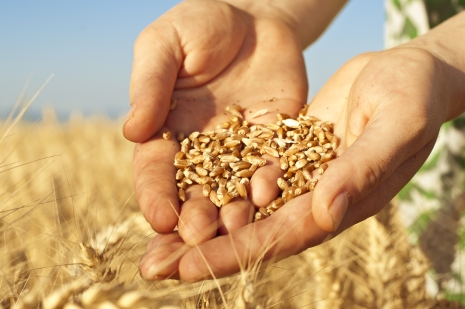So God Made a Farmer: Celebrating the Legacy of Our Growers

16 Sep 2025
News, Latest news
“It had to be somebody who’d plow deep and straight and not cut corners; somebody to seed, weed, feed, breed, rake and disc and plow and plant and tie the fleece and strain the milk and replenish the self-feeder and finish a hard week’s work… So God Made a Farmer.”
When Paul Harvey delivered his “So God Made a Farmer” speech during the 1978 Future Farmers of America (FFA) convention, he’d end up reciting an iconic homage to the enduring contributions made by America’s farmers and ranchers.
Including those who seed, weed, and feed in Wall.
Wall Economic Development Corporation (WEDC) proudly tips its hat to our men, women, and families who take pride in their good stewardship of the land, who often contribute so much while asking for little in return.
In that way, Ag Appreciation is something we can celebrate year-round.
Making the Impossible Possible
Farming can get expensive. Really expensive. Even if you’re just an average Joe who dreams of owning an average Joe farm.
The stuff that comes with an enclosed cab to protect you from the wind, rain, and sun, and a GPS that lets you throw your machinery into autopilot and watch it bleep, blop, bloop its way through tilling, seeding, spraying, harvesting, and mowing? Accomplishing in one hour what used to take all day for Dad to do? Those can come with a price tag of a few hundred thousand dollars.
You’ll also need diesel fuel to keep all the wheels turning. Don’t forget the swather and baler for hay, a grain cart, sprayer, seed, weed killer, fertilizer, and livestock, as well as land on which to pasture them.
You want to be an average Joe farmer in America? Expect to spend anywhere from a few hundred thousand dollars to over a million to get a 400 to 600-acre, average Joe farm up and running.
For most people, that means loans. Lots of them. Which are hard to get because agriculture is risky business, thanks to erratic, unpredictable weather and commodity prices so low they could make you cry.
It’s hard to finance a farm these days. But in Wall, that doesn’t mean it’s impossible.
Funding Opportunities
WEDC’s Revolving Loan Fund (RLF) was designed to fill the gap when traditional financing isn’t an option by helping businesses, including farmers, start, buy new equipment, and expand with flexible term financing at affordable interest rates.
Over the years, the fund has grown to $40,000 with additional monies available through a partnership with West River Foundation for Economic and Community Development.
As the funds are used and repaid, the interest goes back into the RLF to continue to grow the funds available for future business development and growth in the community.
New farmers can also take advantage of the South Dakota Beginning Farmer Bond Program, which helps qualified individuals save on interest by tapping into federally tax-exempt bonds on loan amounts up to $600,000 to buy land and breeding livestock.

Helping You Grow
Just as important as financing is having a strong network of support.
In Wall, Dakota Mill & Grain (DMG) has been bringing its “Helping You Grow” motto to life for decades. It is one of the few family-owned grain operations left in the United States, with ten strategic locations across South Dakota to support farmers with grain marketing, agronomy sales and service, and animal nutrition.
“Our farmers and ranchers are community-oriented, hard-working, and give back as much as they can,” said DMG’s Jeremy Cook.
It’s one of the reasons the company was instrumental in launching Wall’s annual Ag Appreciation Supper. All the farmers and ranchers in the area are invited. Rib-eye steaks are grilled up, and baked potatoes are served piping hot.
“We want to show our appreciation and give back to them,” said Cook. “They’re the backbone of the Wall economy. You’ve got farmers and ranchers that are on the school board; they bring tax revenue to town, get fuel from one of the local people in town rather than going to Rapid City, and create jobs, especially during the summer and harvest time. Our goal is to provide them with the best service and the best products we can give them so they can succeed,” he said.
Contact WEDC today to talk more about how our organization (and community) can support your farming operation. We’d love to hear from you!
More Topics

Longtime Floral Business Hits the Market
Sep 11 2025

